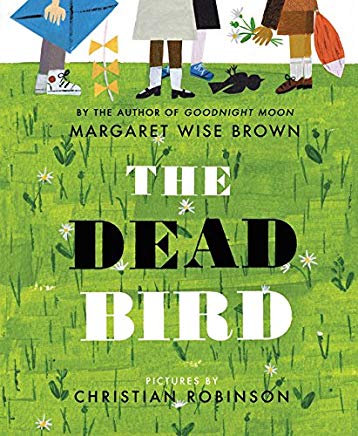The Books

One Potato Review
Four kids and what looks like a potentially knockabout wolf hound are all smiling, then frowning, then smiling by turns throughout their lone, eventful frolic in a city park, and that seems about right under the circumstances. For one, they’re unleashed, and for two, there aren’t any adults around to tell them what to be feeling, or warn them about the sort of company a butterfly costume might attract, or otherwise smother them in Purell when our party happens upon the eponymous Dead Bird, more than sixty-five years after Margaret Wise Brown first imagined it. Hard to know what nudged the editors at HarperCollins to hunt down another illustrator for this story (the great Remy Charlip once contributed his services, in 1995), and yet it comes as a relief when Brown’s matter-of-fact paganism still pulses through these pages, as when the children can barely contain their exclamation points at being charged with such a passing, “because now they could dig a grave in the woods and bury it. They could have a funeral and sing to it the way grown-up people did when someone died.” Is it responsibility, or opportunity driving them? Either way, the switch feels pretty atavistic. You can practically smell the face paint as they set to gathering white violets and geraniums, a song bubbling spontaneously forth:
Oh bird you’re dead
You’ll never fly again
Way up high
With other birds in the sky
We sing to you
Because you’re dead
Feather bird
And we buried you
In the ground
With ferns and flowers
Because you will never fly
Again in the sky
Way up high
Little dead bird…
Whereupon they all start crying because the singing was so beautiful, which is kind of hilarious, but deeply, mysteriously felt in a way that seems completely at odds with the crummy moralizing that constitutes organized religion when grown-ups are around. They’ll learn. What begins as simple kindness may bring us together or point us in the direction of a higher power, though chances are it will require a little improvisation along the way.
Related Blog Entries
- Be Kind Rewind | May 11 2016
